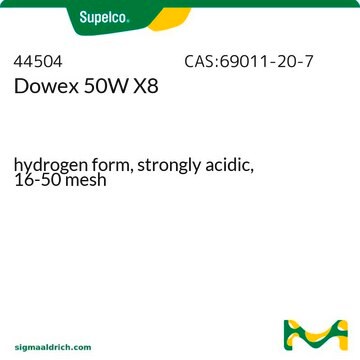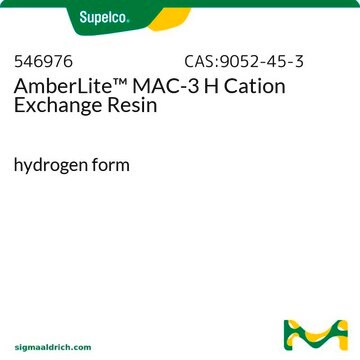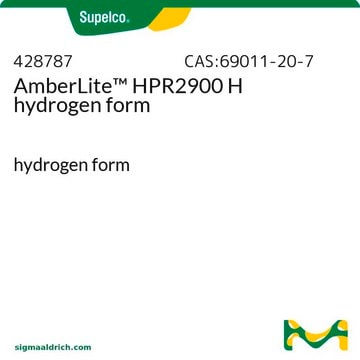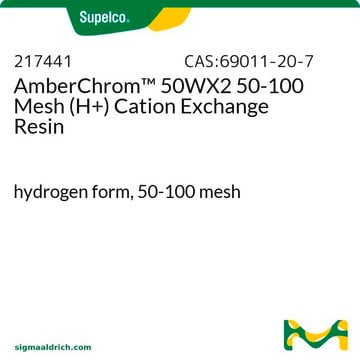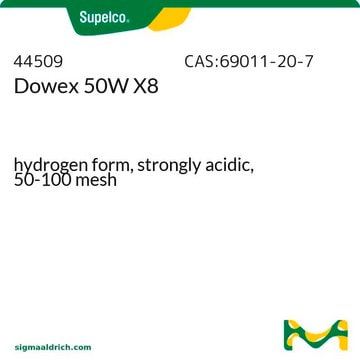463728
Manganese
powder, ≥99.9% trace metals basis
Synonym(s):
Colloidal manganese, Manganese element, Manganese-55
About This Item
Recommended Products
Quality Level
Assay
≥99.9% trace metals basis
form
powder
resistivity
185 μΩ-cm, 20°C
bp
1962 °C (lit.)
mp
1244 °C (lit.)
density
7.3 g/mL at 25 °C (lit.)
SMILES string
[Mn]
InChI
1S/Mn
InChI key
PWHULOQIROXLJO-UHFFFAOYSA-N
Looking for similar products? Visit Product Comparison Guide
Related Categories
General description
Application
- a starting material for the preparation of manganese oxide for lithium ion batteries
- a material used in surface alloying
- sintering of steel to form manganese steel
Features and Benefits
✔ Consistent quality
✔ High purity
✔ Available to scale up: bulk and pilot scale
Signal Word
Danger
Hazard Statements
Precautionary Statements
Hazard Classifications
Water-react 1
Storage Class Code
4.3 - Hazardous materials which set free flammable gases upon contact with water
WGK
WGK 2
Flash Point(F)
Not applicable
Flash Point(C)
Not applicable
Personal Protective Equipment
Choose from one of the most recent versions:
Already Own This Product?
Find documentation for the products that you have recently purchased in the Document Library.
Customers Also Viewed
Articles
Higher transition metal silicides are ideal for anisotropic thermoelectric conversion due to their Seebeck coefficient anisotropy and mechanical properties.
Higher transition metal silicides are ideal for anisotropic thermoelectric conversion due to their Seebeck coefficient anisotropy and mechanical properties.
Higher transition metal silicides are ideal for anisotropic thermoelectric conversion due to their Seebeck coefficient anisotropy and mechanical properties.
Higher transition metal silicides are ideal for anisotropic thermoelectric conversion due to their Seebeck coefficient anisotropy and mechanical properties.
Our team of scientists has experience in all areas of research including Life Science, Material Science, Chemical Synthesis, Chromatography, Analytical and many others.
Contact Technical Service
